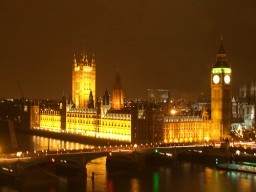 Thursday 7 May 2015 will see the nation heading to polling stations until 10pm to vote on the party they believe should win the parliamentary elections.
Thursday 7 May 2015 will see the nation heading to polling stations until 10pm to vote on the party they believe should win the parliamentary elections.
So what does that mean to you as a student? As the future work force of our country and global economy, we think it’s important you have your say on who represents you in the UK Parliament.
Toni Pearce, President of the National Union of Students (NUS) thinks it’s important too. In a blog post about why students hold the key to next election she said: “There are 197 seats across the country where the sitting MP has a majority of ten percent or less, and so EACH of these seats would need a swing of no more than five per cent to change hands entirely. In all but six of those seats, official Census data shows that the number of students living there is larger than the swing required”.
To help you better understand the party policies which affect students, the NUS Connect website provides links to policy briefings on education, employment and community.
Register to vote
In a General Election, you can vote just once. As a student you may be able to register to vote at your home or term-time address, so that wherever you are, you can still have your say.
Due to the time of year, we anticipate most BU students will vote in Bournemouth or Poole, so make sure you register your term-time address by the 20 April 2015. Soon after you’ve registered you’ll be sent details of your local polling station.
Registering online takes five minutes – the deadline is Monday 20 April 2015.
Find out more – TalkBU
If you want to vote but feel you don’t know enough about it, come along to “An Idiot’s Guide to the Elections” by David McQueen at 5.30pm, Tuesday 21 April in Dylan’s on Talbot Campus, and join the discussion using #TalkBU.
To find out if you’re eligible to vote, check The Electoral Commission website for details.
 Bournemouth University
Bournemouth University